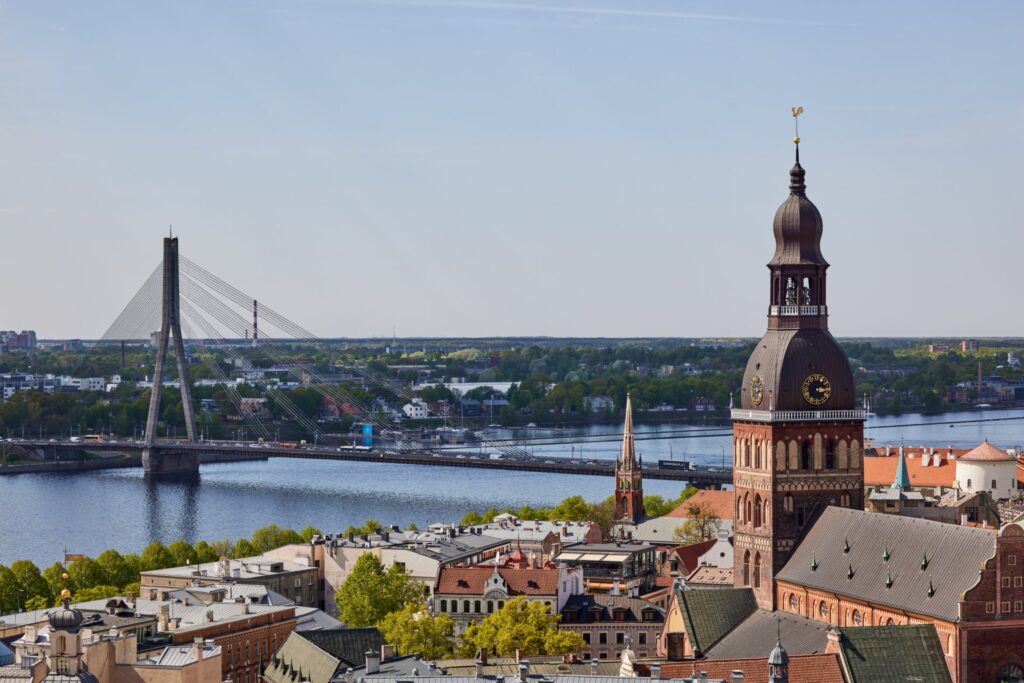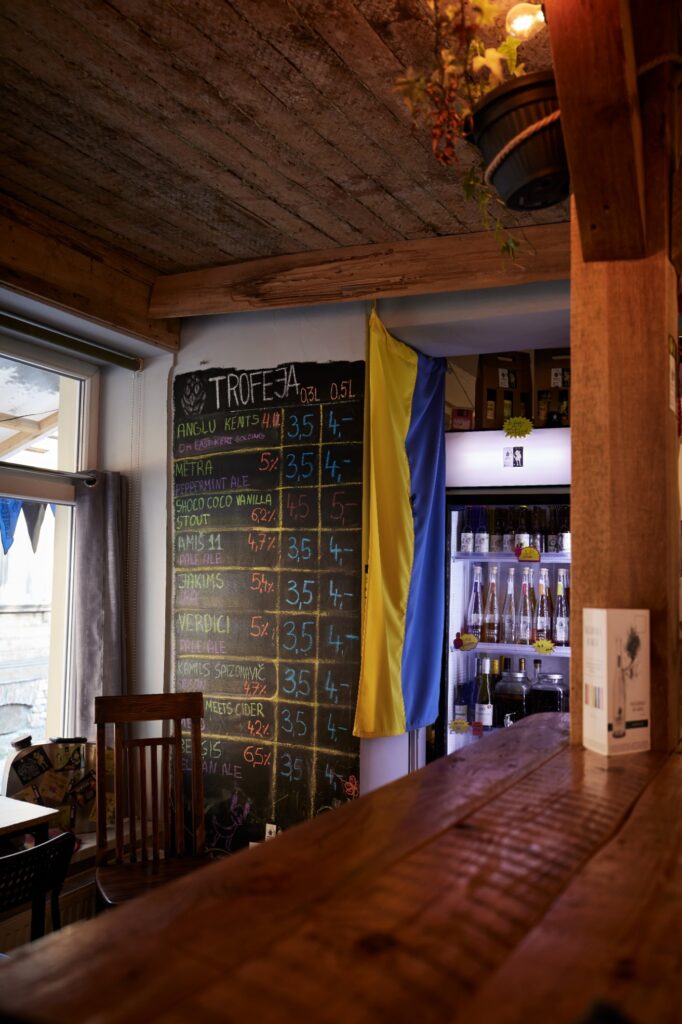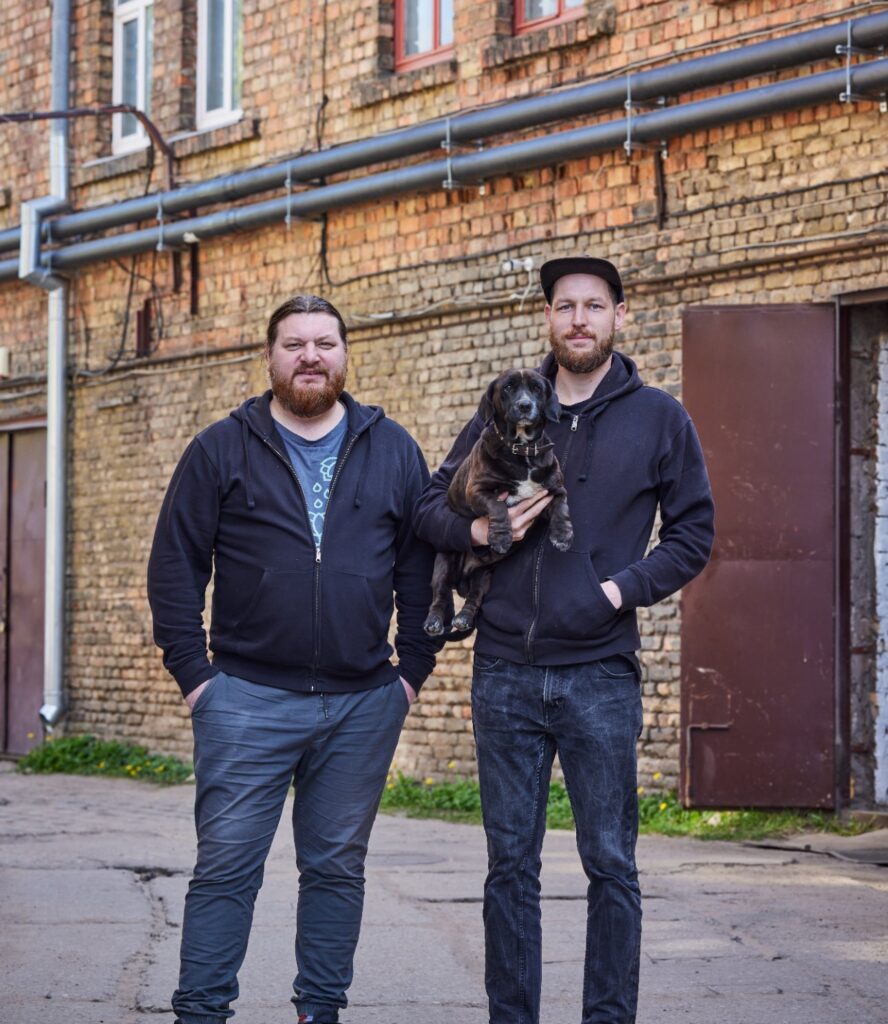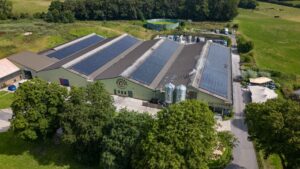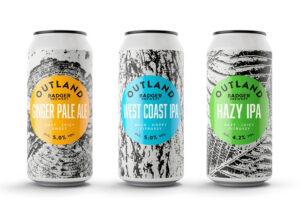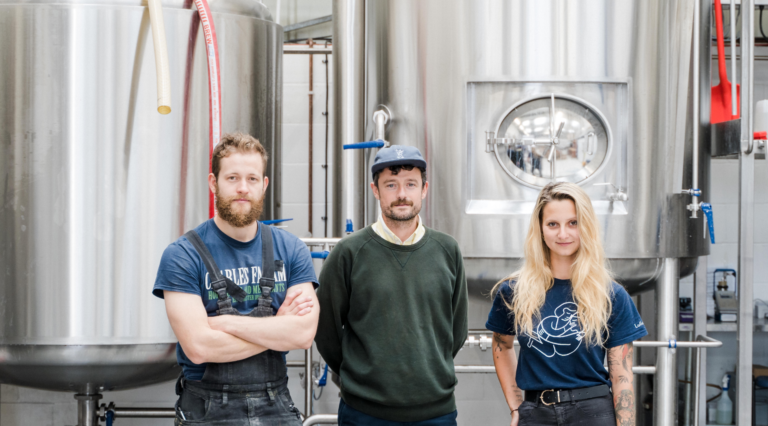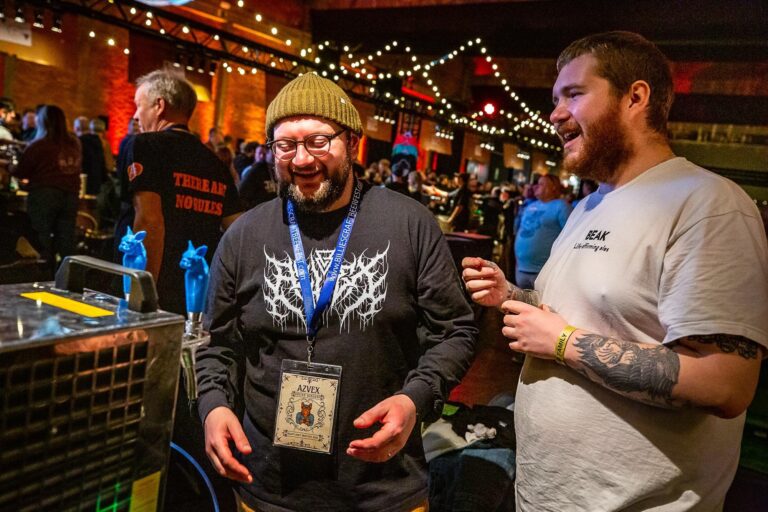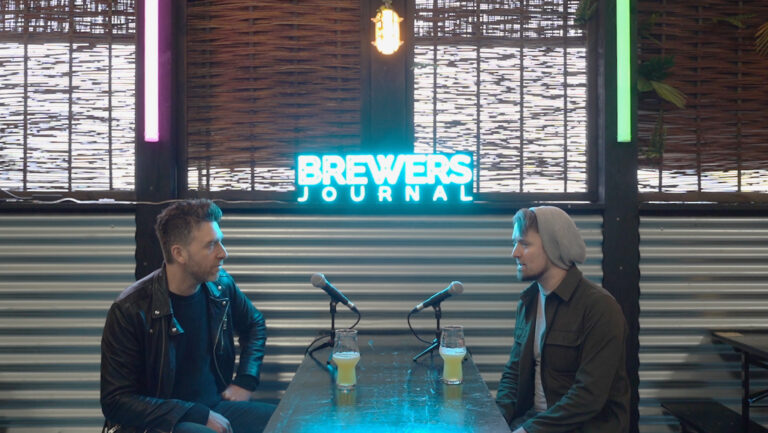There are a wealth of brilliant breweries in the Baltics and in Latvia, lovers of beautiful beer have much to choose from. Tradition married with innovation means you are as likely to discover and enjoy a rustic lager or Double IPA as you are a beer featuring locally collected medicinal plants and honey. And thankfully, the people and businesses behind these beers are just as fascinating, too. Photography: Noelia Amado
“I suppose you could argue that Latvian beer is defined by the creativity of the brewers who make it. Because you can see every type of style here!” explains Rihards Okmanis, the head brewer at Duna Brewery.
And while you can now try locally-produced Sours, IPAs, Lagers and Herbal Ales, to name but a few, beer has been synonymous with Latvia for centuries. And as a result, to define the country’s beer identity under any umbrella term is a foolish task.
Over time there have been countless dainas and folk songs written about beer. Brewing has long been celebrated in song, which is no surprise with small-scale brewing an intrinsic part of the Latvian nation since the middle ages.
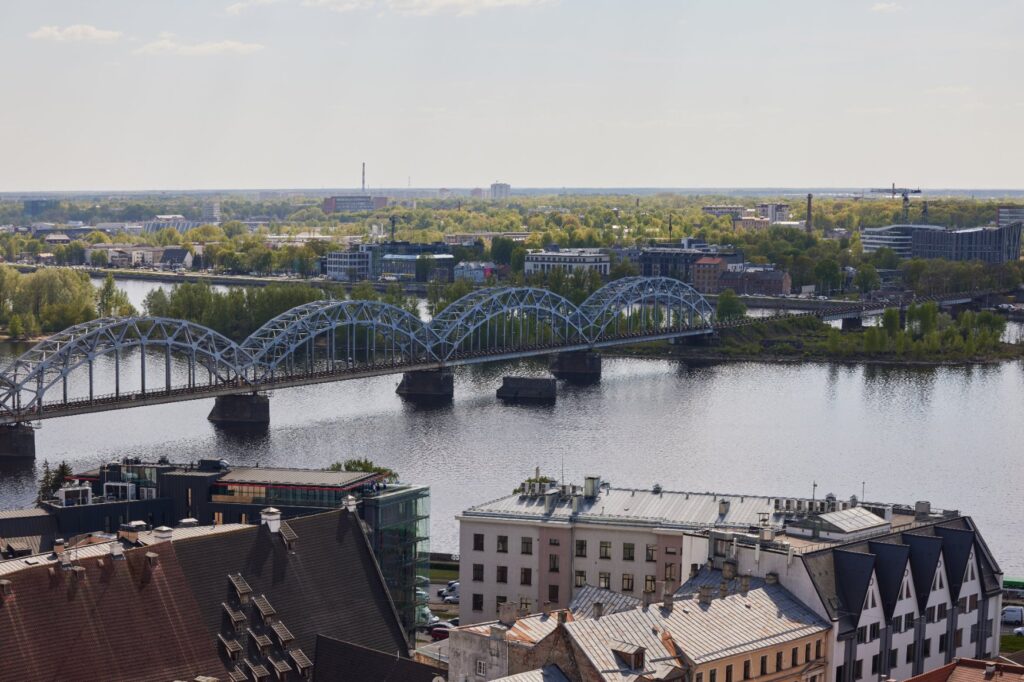
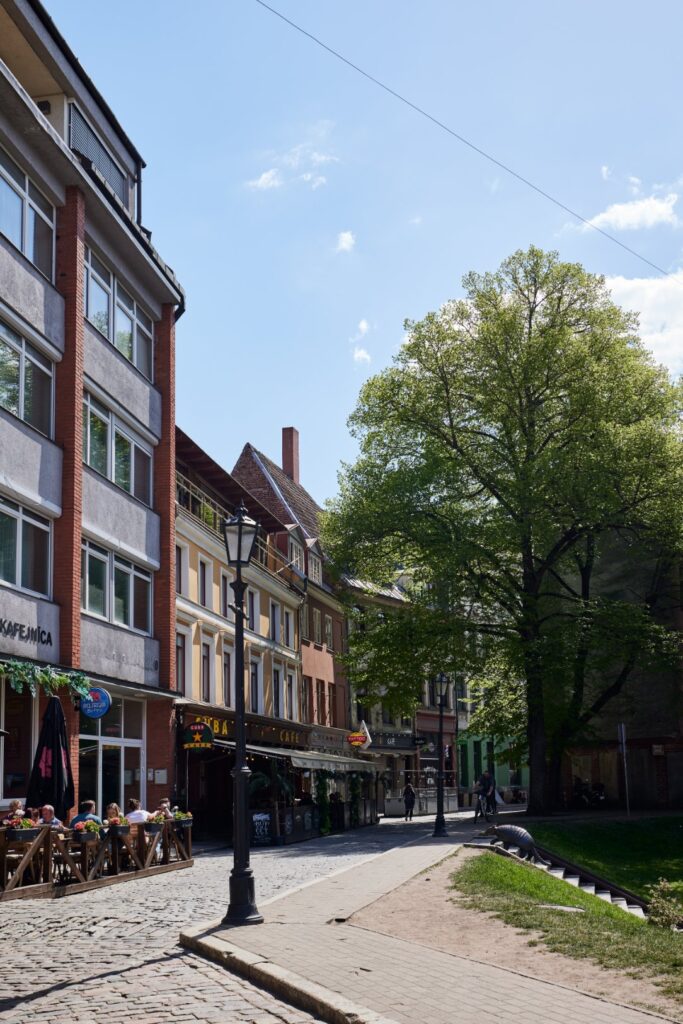
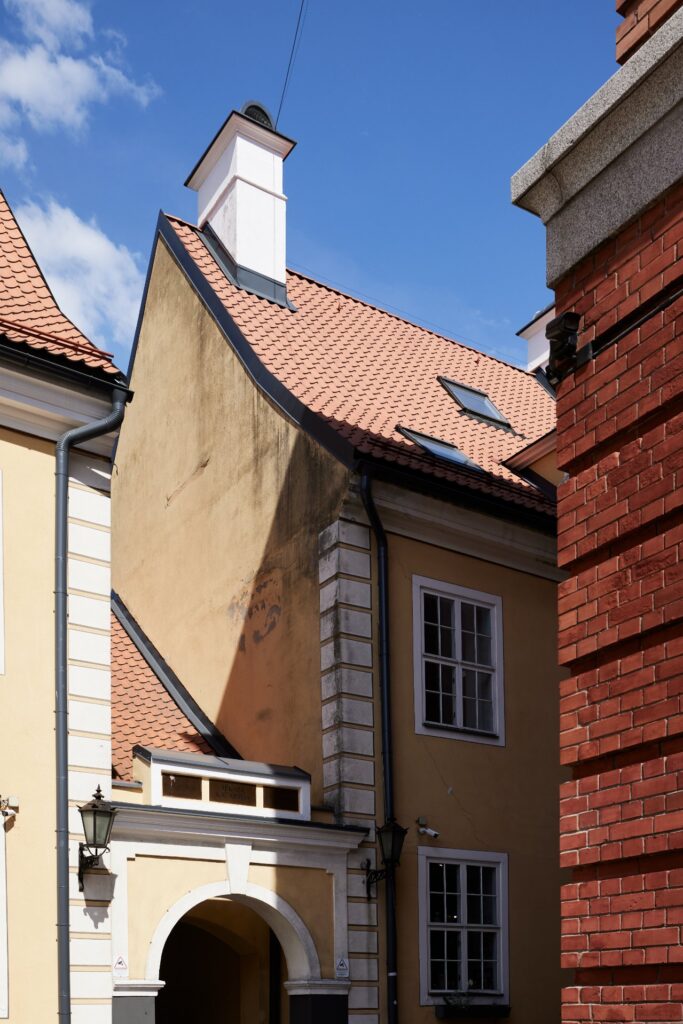
Latvian farmers using their own ingredients marks the real beginning of “craft brewing” in the country, while the industrial revolution brought large-scale breweries to Latvia.
However this was not to last as the First World War, followed by the onset of the Soviet Regime decades later, would greatly impact the state of play in brewing. This however would result in a return to small-scale production, which effectively means Latvia has arguably been ahead of most of the world in the more recent growth of craft breweries.
And in the here-and-now, across the spectrum of beer and brewing, this beverage is well-and-truly booming in the country of Latvia. According to figures realised by Eurostat earlier this year, Latvian breweries produced 85 million litres of beer in 2022, a marked increase on the 75 million litres produced in both 2021 and also the year prior.
“I suppose you could argue that Latvian beer is defined by the creativity of the brewers who make it. Because you can see every type of style here!”
Rihards Okmanis, Duna Brewery
And according to figures from Statista, revenue in the beer market amounts to US$237.1m in 2023, with the market expected to grow annually by 1.39%.
One of the key trends in the Latvian beer market, Statista notes, is the increasing demand for craft beer. Craft breweries have been gaining popularity in recent years, offering consumers a unique and diverse range of flavours and styles.
But this is where the beauty of Latvian beer lies. Be it a beer rooted in tradition or a trailblazing brew from a new business, there are options for all.
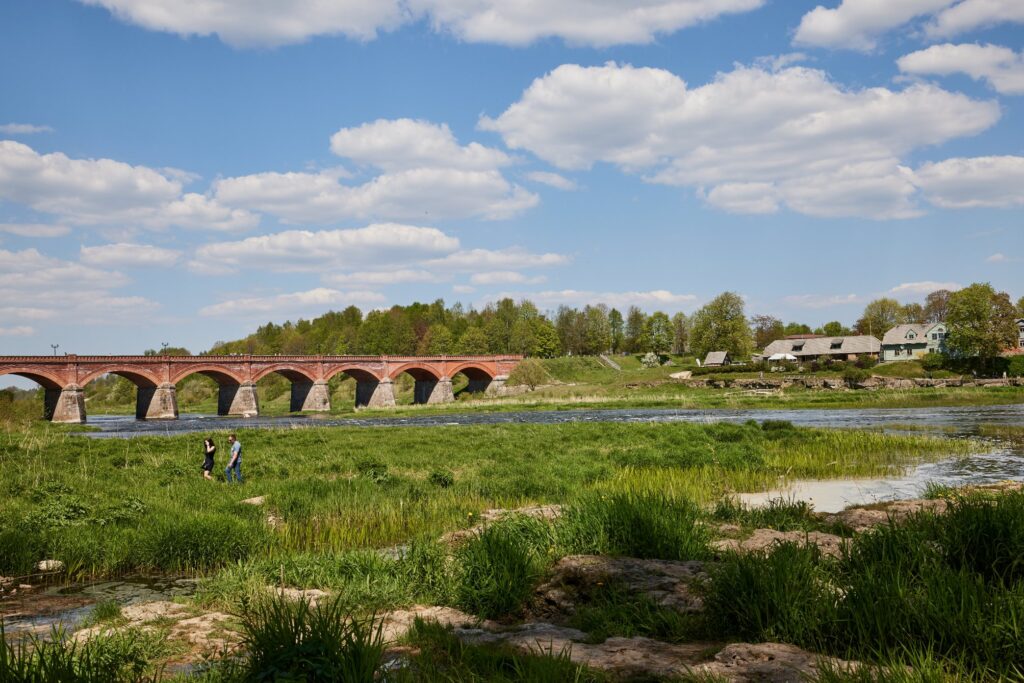
Rihards Okmanis joined Duna Brewery as a brewer in June 2021 before swiftly being promoted to the role of head brewer the following April. The brewery is known for its regarded Lagers and Pale Ales, as well as other styles such as Rauchbier, Sours and the excellent, perfectly-balanced Heather and Peppermint Herbal IPA.
Duna is based in Kuldīga (above) which is a town in the Courland region of Latvia, in the western part of the country, and around two hours from Riga. The town, often known as the Nordic Venice, is the centre of the Kuldīga Municipality with a population of approximately 13,500.
In his experience working in the Latvian brewing industry, Okmanis has seen the sector migrate away from making light and dark beers to one that produces beers from IPAs and DIPAs, to Sour Smoothie-style beers and also Barrel-Aged numbers.
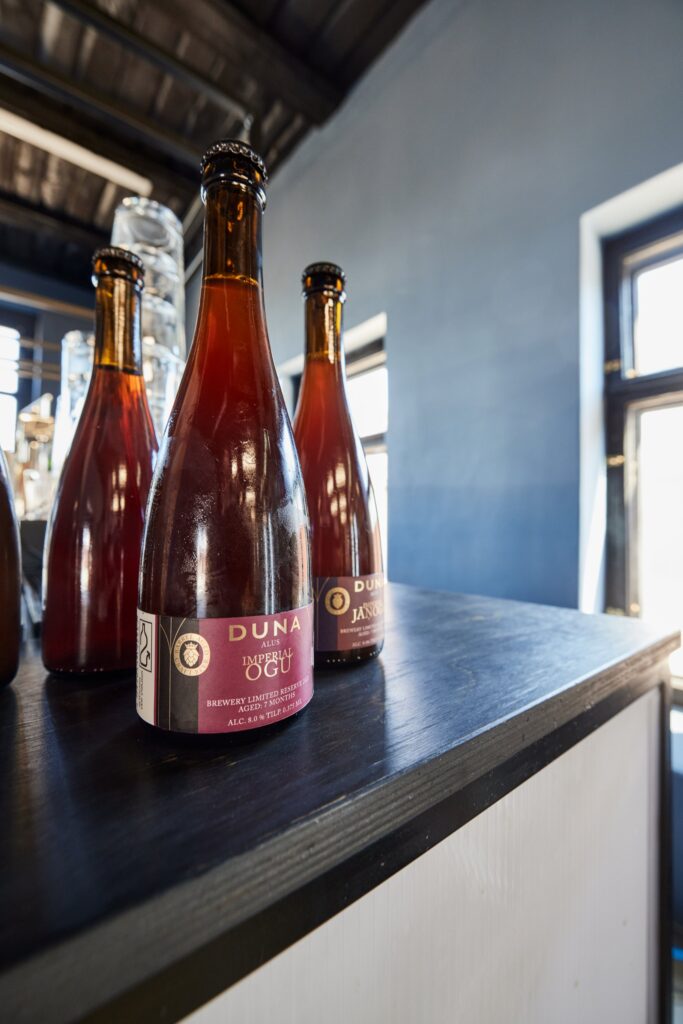
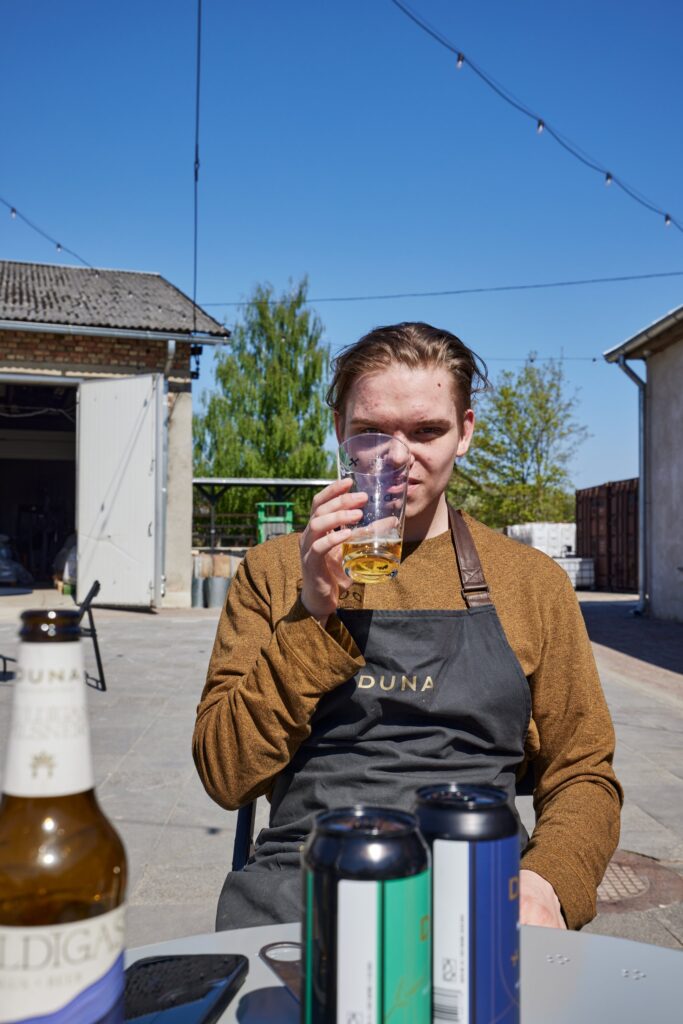
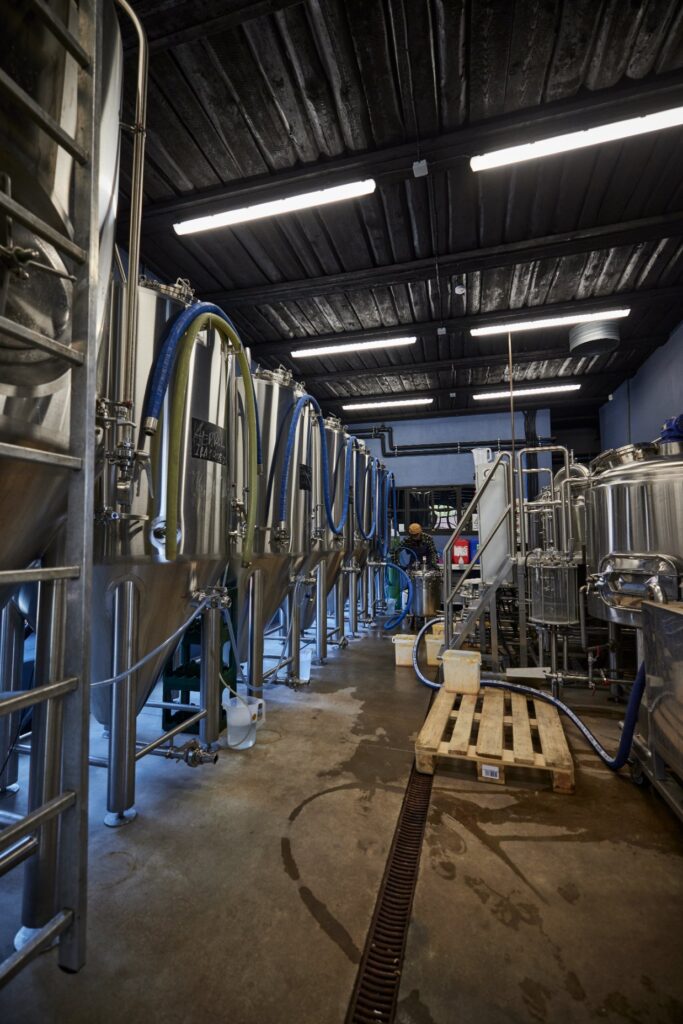
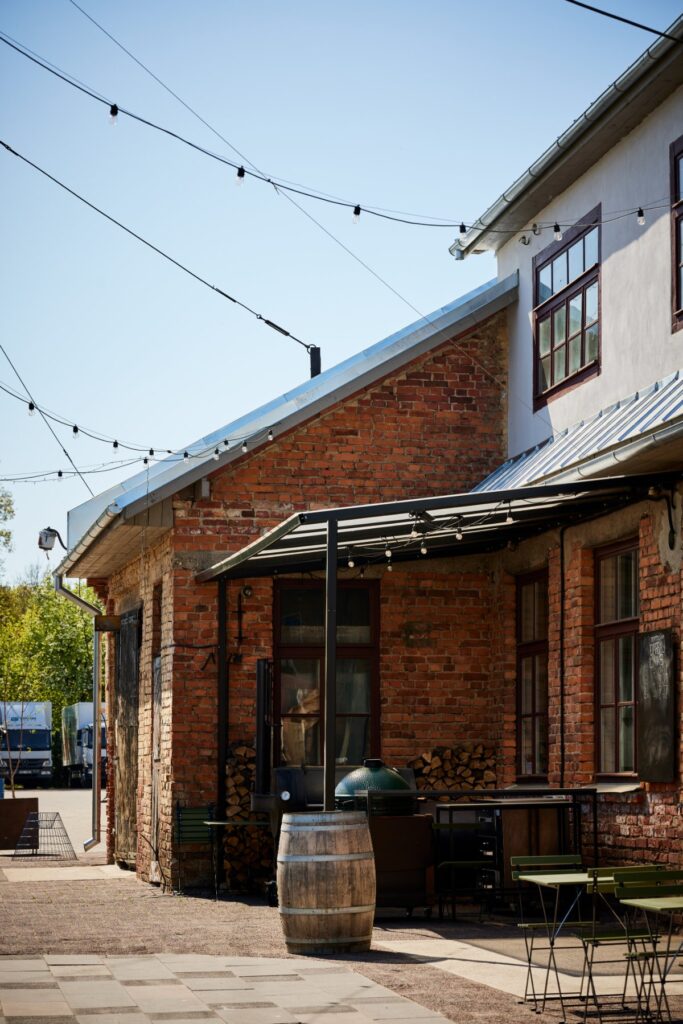
“You also still have Herbal ales, which remain popular because of breweries such as Labietis doing a really good job at creating such special beers,” he explains.
“However in my experience, the most popular style in Latvia now is probably IPA, which is hardly much of a surprise. But coming from a perspective here in Kuldīga, seeing people try – and enjoy – Sours is really rewarding.
“When we started at Duna, most people couldn’t fathom what a Sour beer was, or how it could taste. But that has changed, and it has changed for the better.”
That desire for innovation and experimentation can be observed and enjoyed at Alus Rūme Trofeja. Located in the Latgale Suburb of Riga, they like to describe themselves as a homebrewing setup that got out of hand.
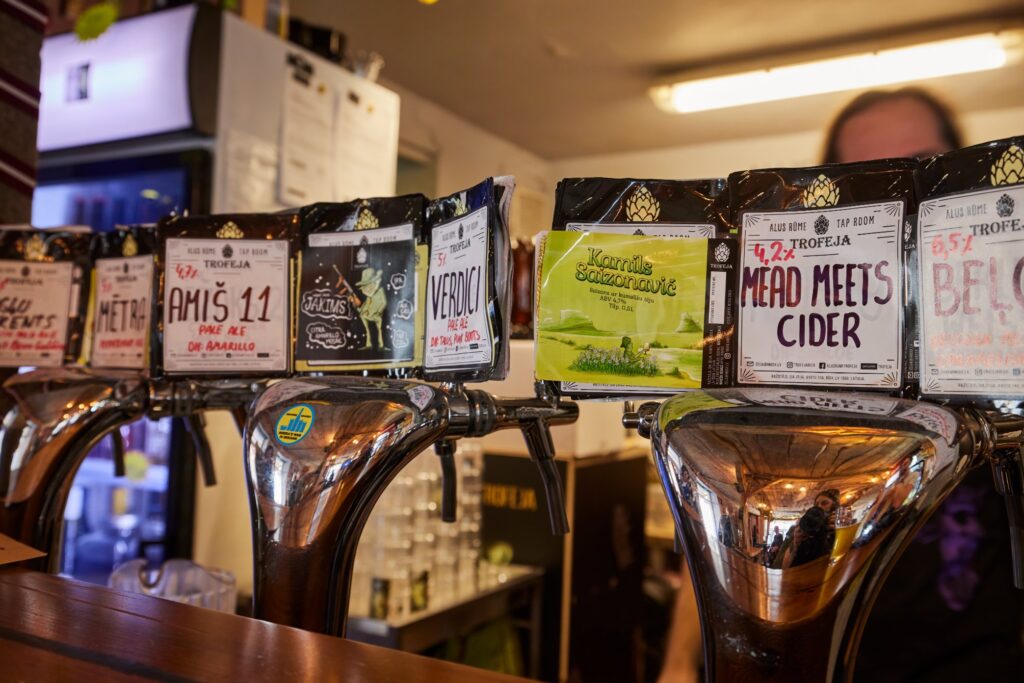
Brewing into 10 200l tanks, they are one of the smallest breweries in the country. The brewery’s small size, however, does not in any way affect the range of outstanding beers it produces.
These include Farmhouse Ales, Herbal Ales, Single Hop APAs as well as diversifying into Mead, too.
While there are fridges showcasing beers from other European breweries, there are nine taps pouring their own produce.
The batch size means if a new beer is released during a busy period, it could have sold out two days later. And while the business creates a number of beers, one common theme is approachable ABV, the strongest being 6.6%.
“Our idea is if you come to a pub to drink beer, you probably want more than one glass, right? And if you have a 12% stout straightaway, then your evening is probably likely to get cut short quite quickly,” they explain.
Alus Rūme Trofeja celebrated its third birthday in the summer of 2023. Like many businesses of this age, opening before COVID restrictions took hold, and adjusting to the landscape that followed, has been a challenge, but one they’ve embraced. “Every month is getting better and better,” they tell us.
The team at Alus Rūme Trofeja are proud to call Riga home. “Historically, Riga has been a beer city. Before the First World War there were three massive breweries, they were huge.
“But the war saw much of our infrastructure destroyed and the brewing equipment melted down for tanks and guns. The big outfits never really recovered, which presented an opportunity for others.”
They add: “We have a love for creating drinks that stems from our history. That desire has never been lost. So even during the time of the Soviet regime, when everything was nationalised, you ended up with lots of smaller breweries.
“Every village would have one or two small brewing outfits. Occasionally they would come together to make a slightly bigger one but even then they were relatively small.
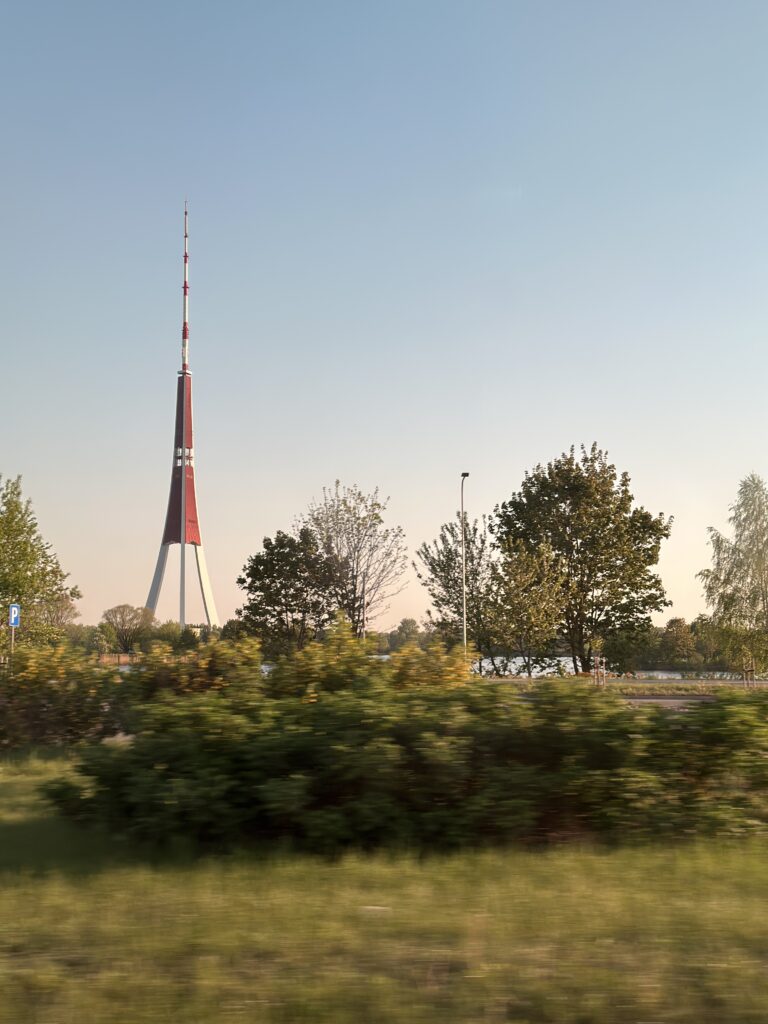
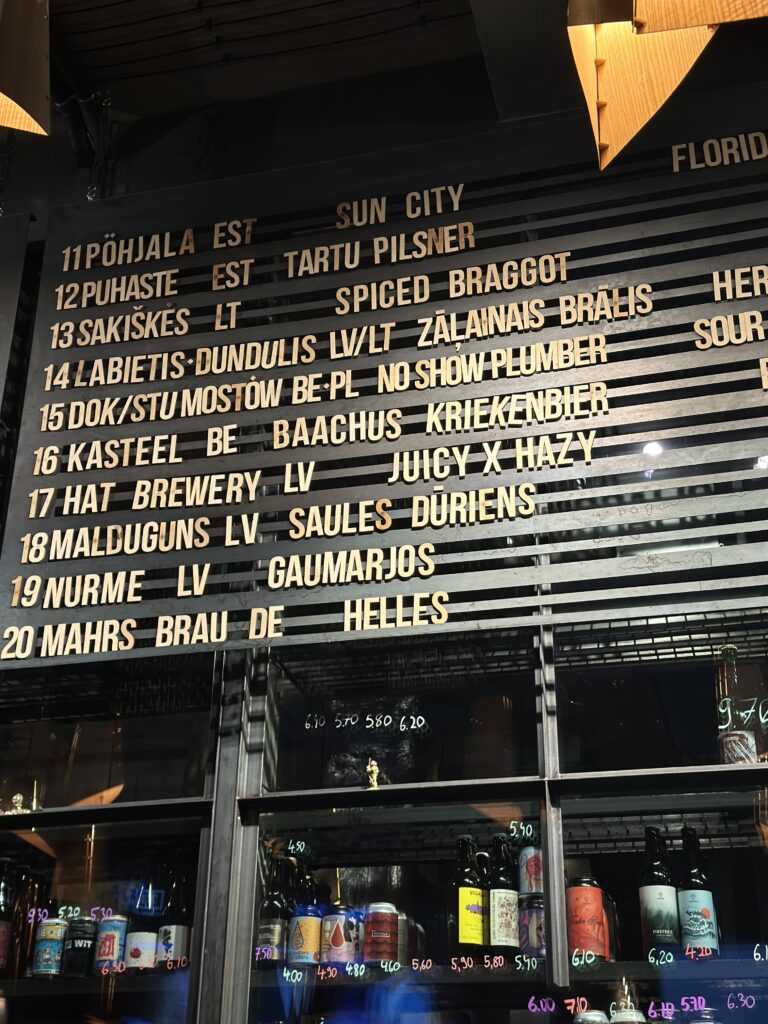
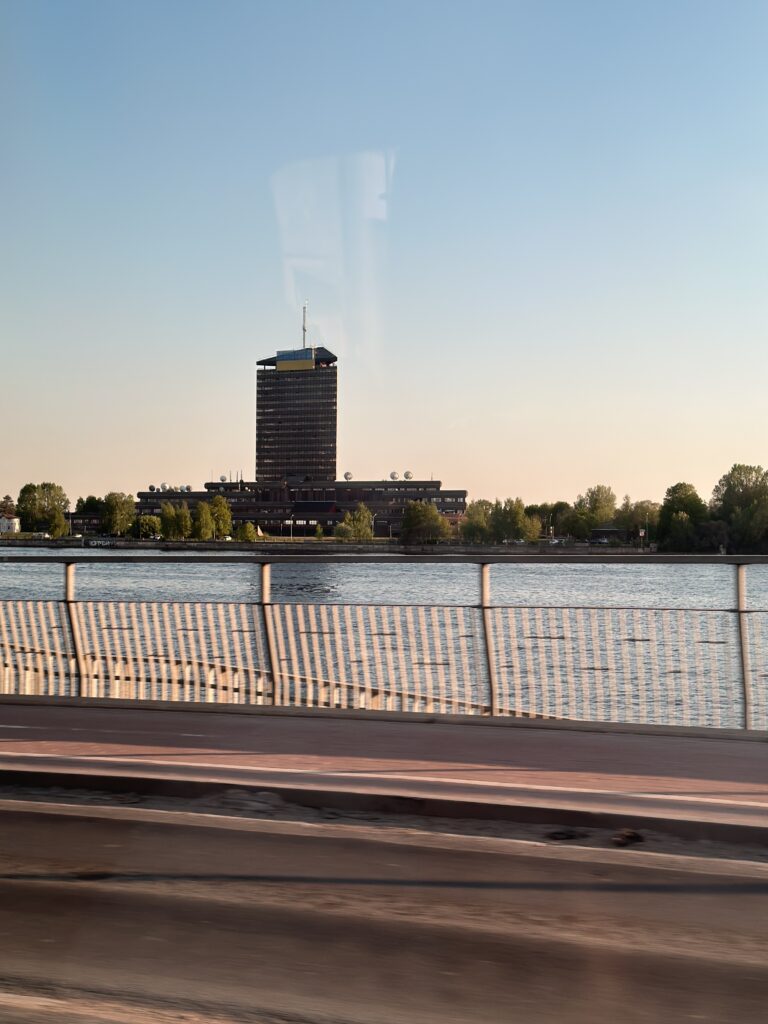
“And I’d argue that at the start of the craft beer movement some 10-15 years ago, many businesses starting out would rely on the knowledge and recipes of those older brewers. And I’d say approximately nine of every 10 craft breweries out there were also all members of great home brewing communities. These brought people together and helped create great breweries.”
“Not only do we have great breweries but we also really value that community, too,” he says. “There is a very strong bond between these businesses, because they started out in similar ways. They still exchange recipes and help each other out.
“There is no competition, just massive amounts of respect. I don’t think there are many industries where if you come to me and enjoy your time, I encourage you to visit our so-called competitors when you leave.”
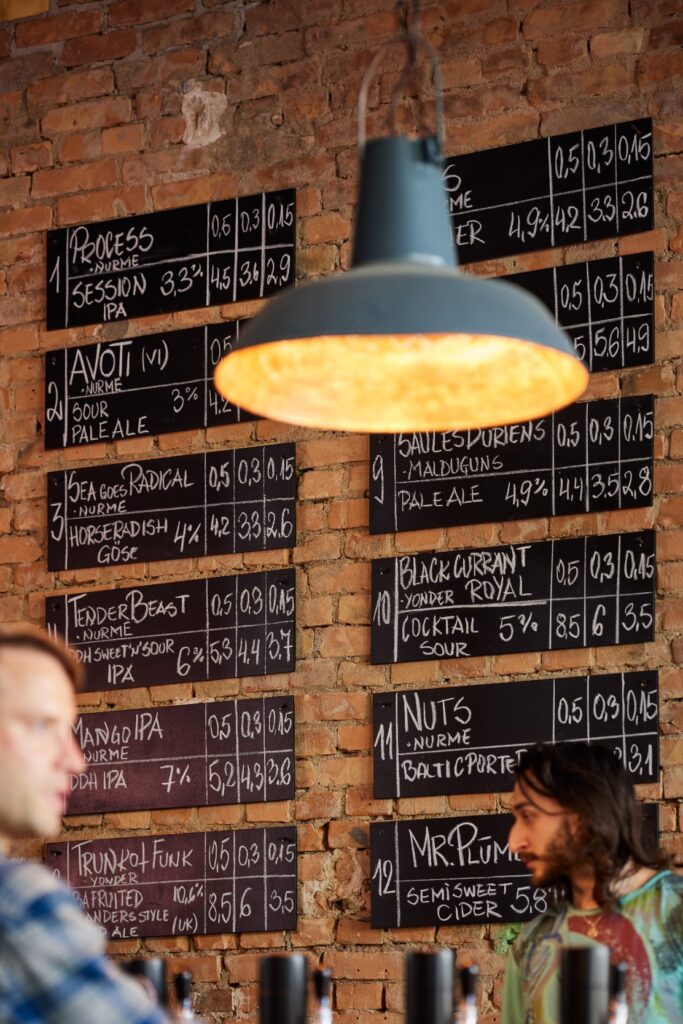
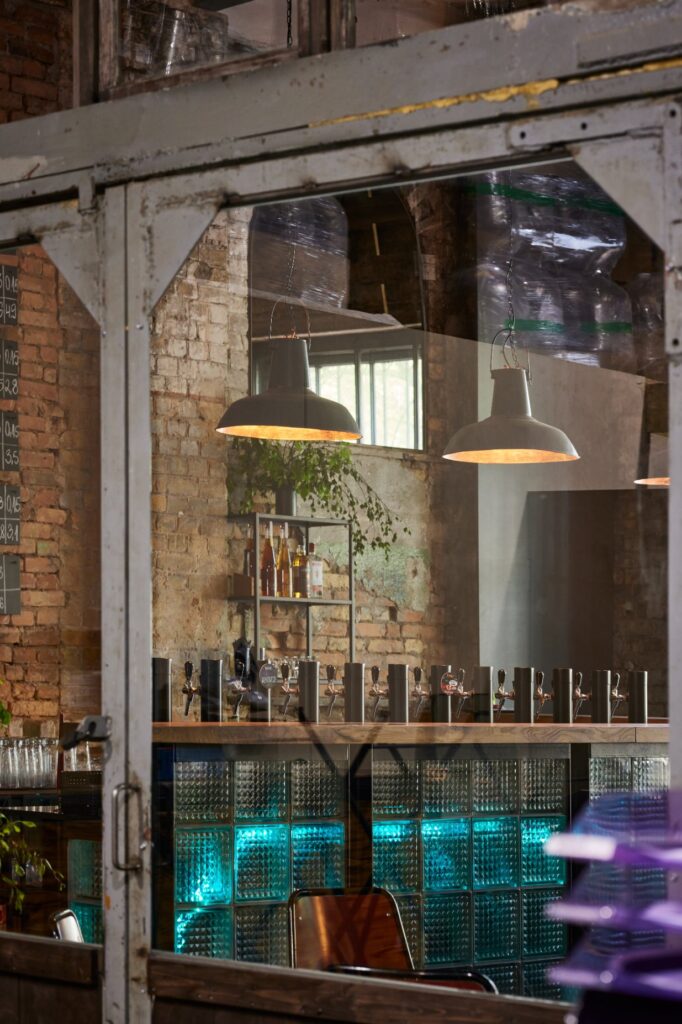
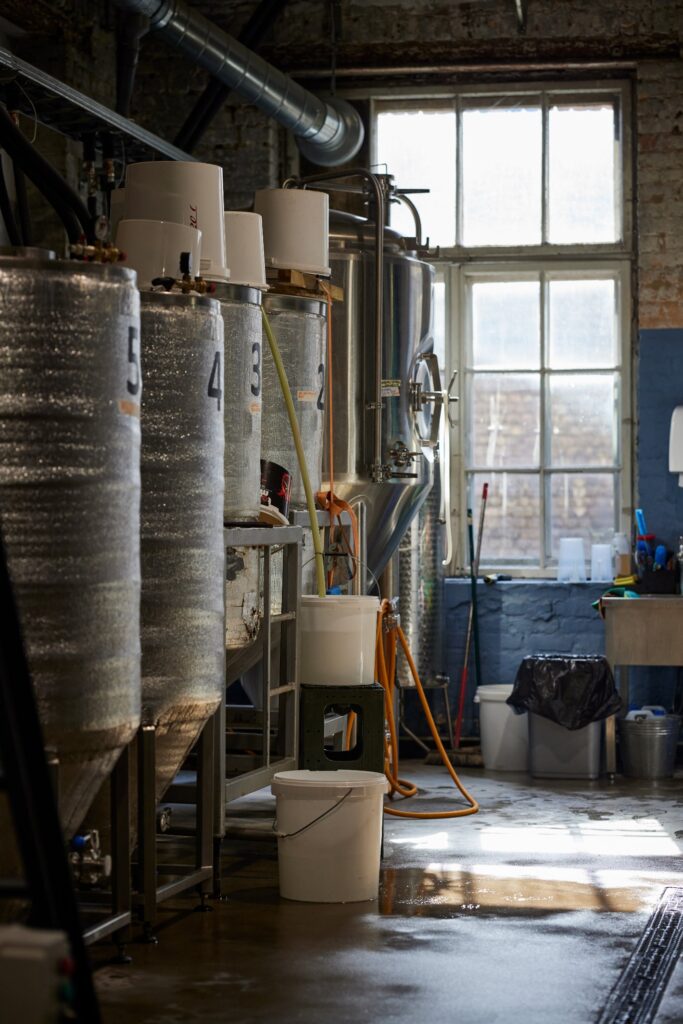
Minutes from Alus Rūme Trofeja is Nurme, a small, modern brewery in the heart of Riga, which has been one of the most exciting breweries in the Baltics since opening in 2016.
Like many of its peers across the globe, Nurme is located in a historically industrial quarter of the capital. In this instance at Vagonu Street 21.
This location, which was once a bit worn out by the ravages of time, is now reborn as a new cultural and recreational stop. The power of beer as a positive force.
They explain: “Our beers are hand-crafted using the highest quality ingredients and, where possible, preferring local northern natural goodness.
“Although we have thoroughly familiarised ourselves with the history and traditions of beer, we also draw inspiration from modern eclecticism. We use our skills and passion for experiments to create ever new, surprising combinations and reveal the true diversity of beer to everyone – from classically refreshing pilsners to juicy fruity Pale Ales and IPA, from refreshing Sours to creamy chocolatey Porters and Stouts.
Their Pinefruit IPA, which is brewed with pine buds gathered in Latvian forests, is refreshingly bitter with hints from grapefruit peel, while Mosaic and Simcoe hops is a real hit.
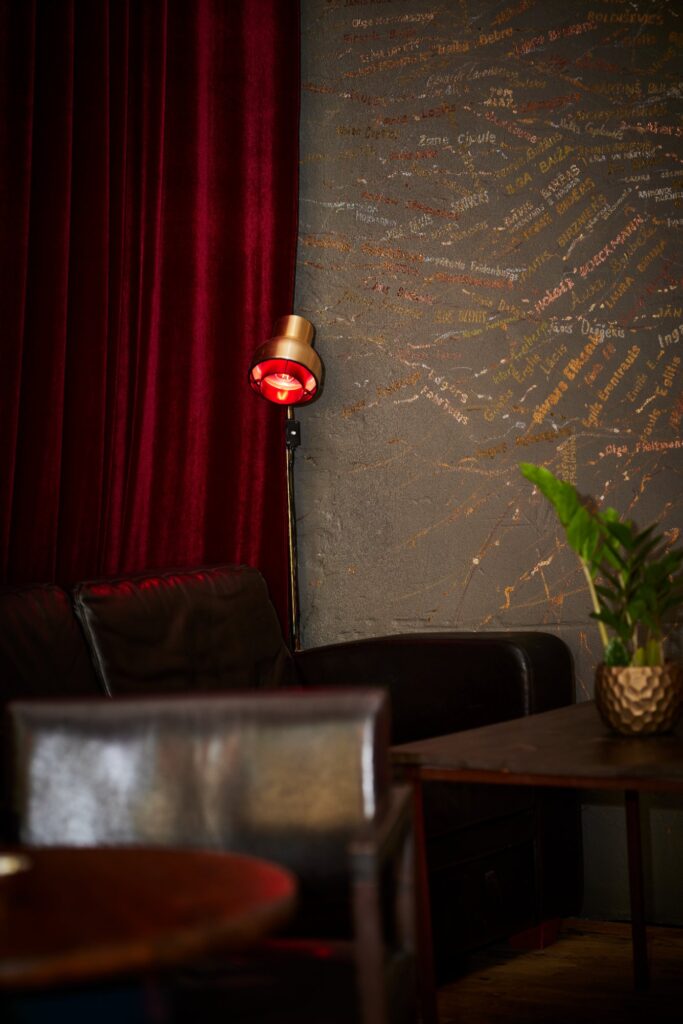
Elsewhere in Riga is Labietis. It’s impossible to discuss modern Latvian beer without mentioning one of the pioneers of the country’s craft beer movement. From the beginning in 2013, the flavours that can be found in their “Pagan brews” have been characterized by the extensive use of Latvian natural products in the brewery’s fermentations.
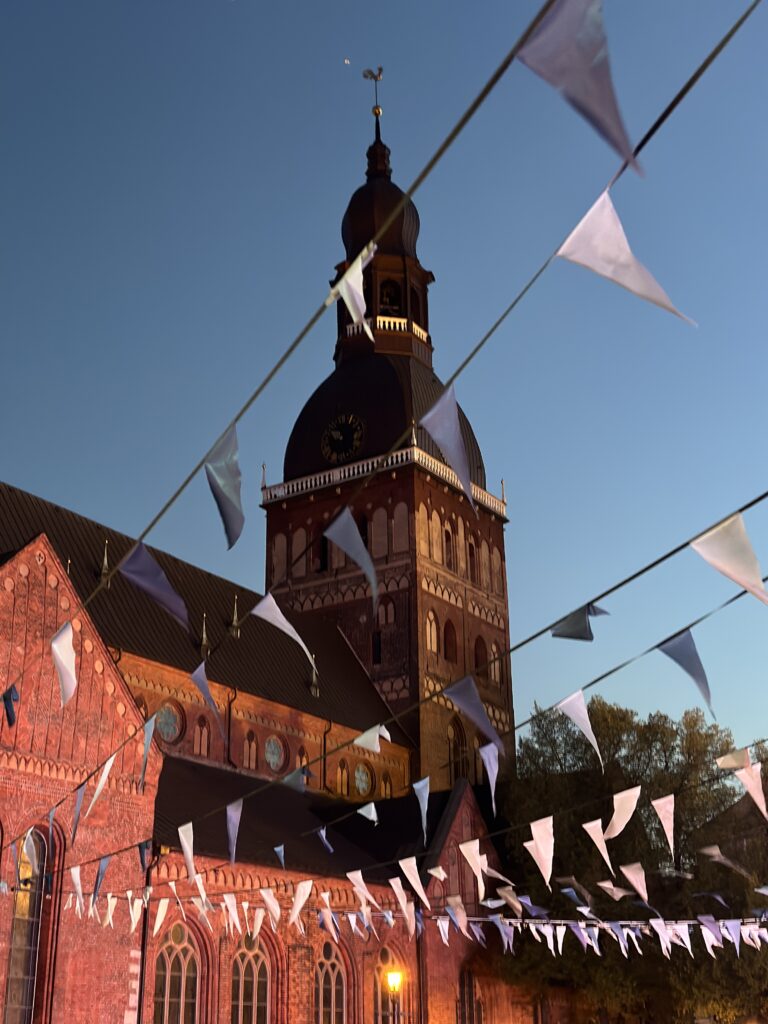
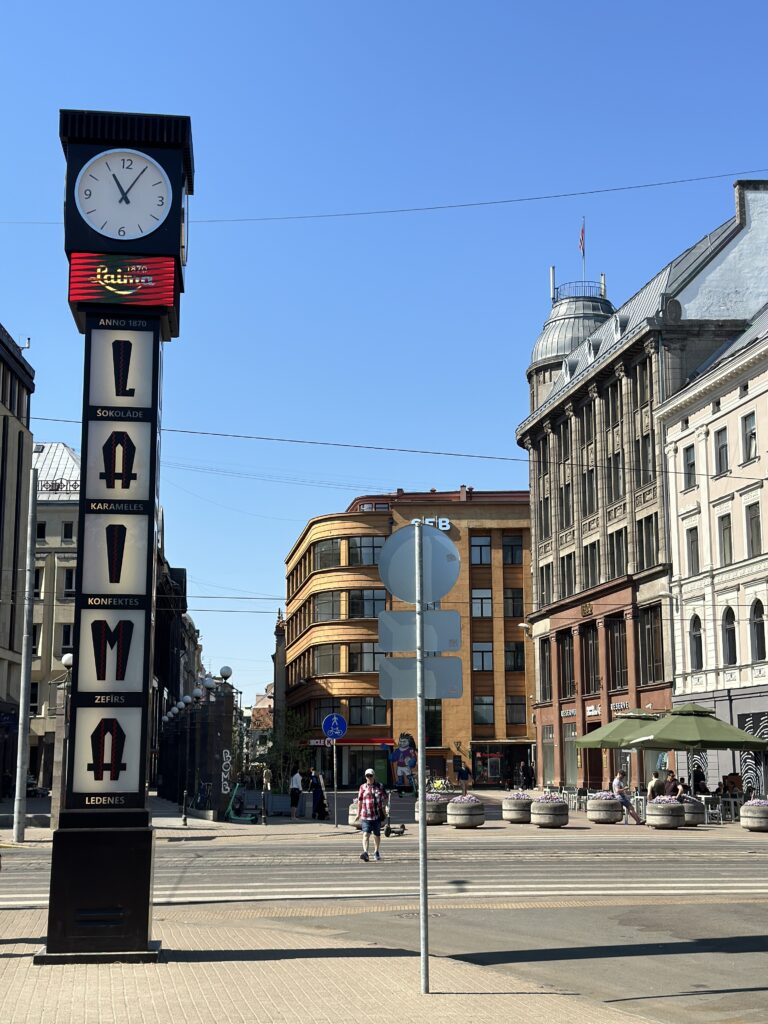
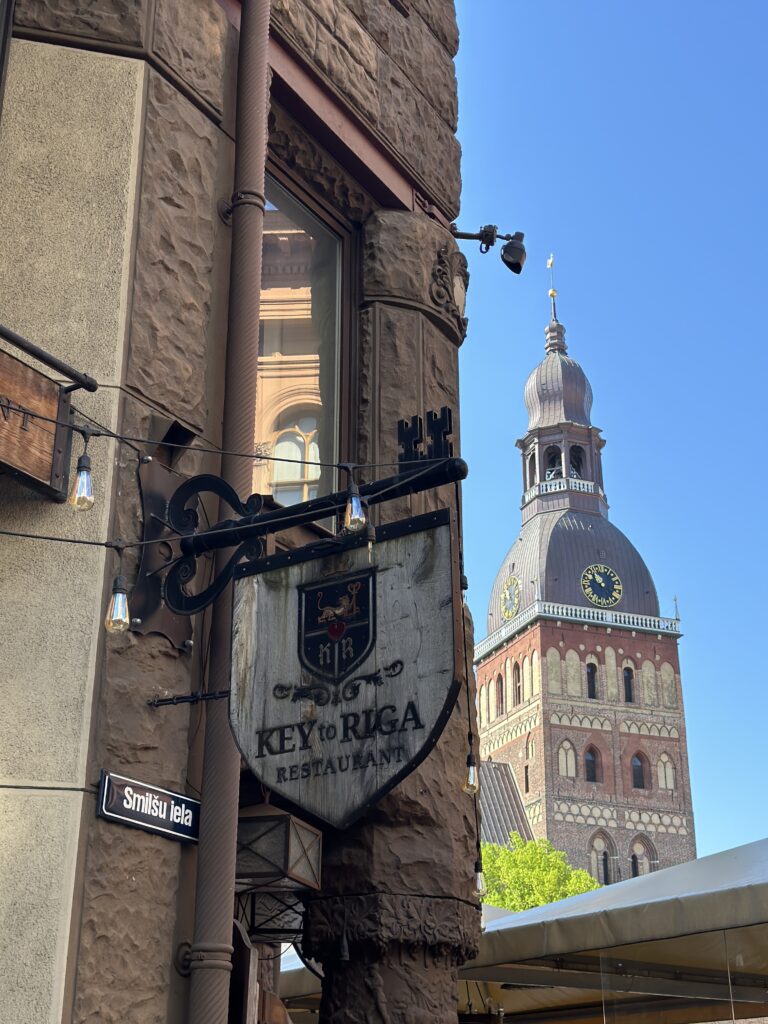
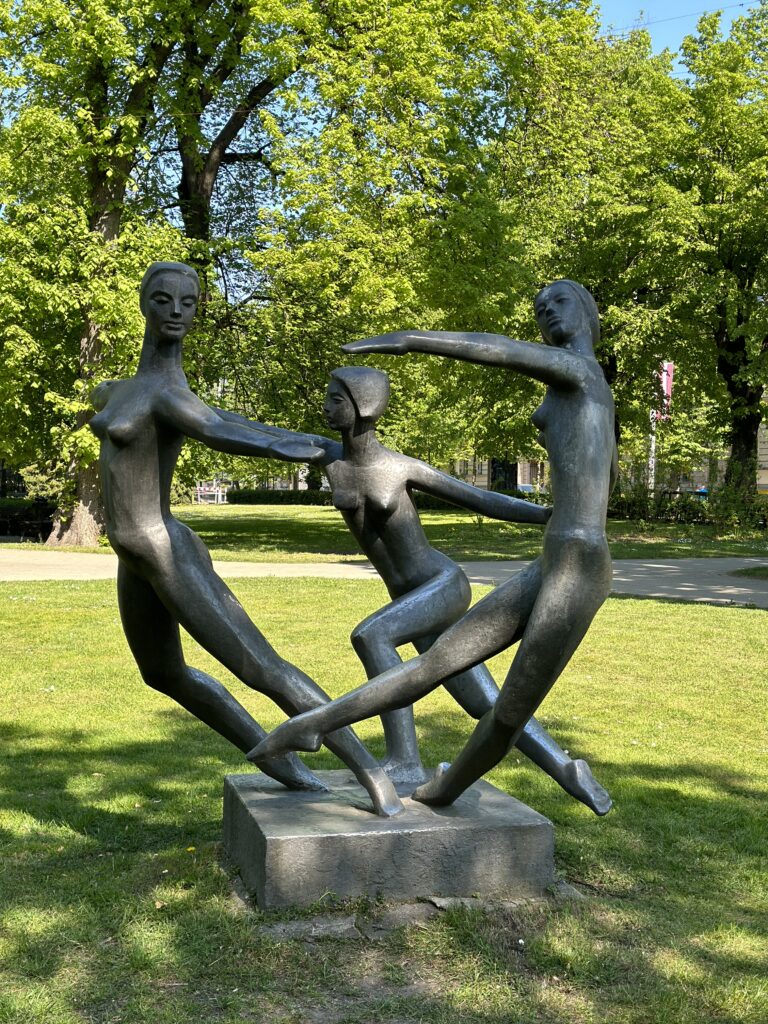
Inspired by the cultural history of the Baltic region – from chronicles and archeological discoveries to Latvian folk songs and Scandinavian myths – they make unusual, but balanced and interesting beers, meads and braggots for the modern language.
In addition to using imported hops in their fermentations, they also use more than 20 different locally collected medicinal plants and honey, more than 10 types of berries and fruits collected in Latvia, as well as barley, wheat and rye malts mostly grown in Latvia.
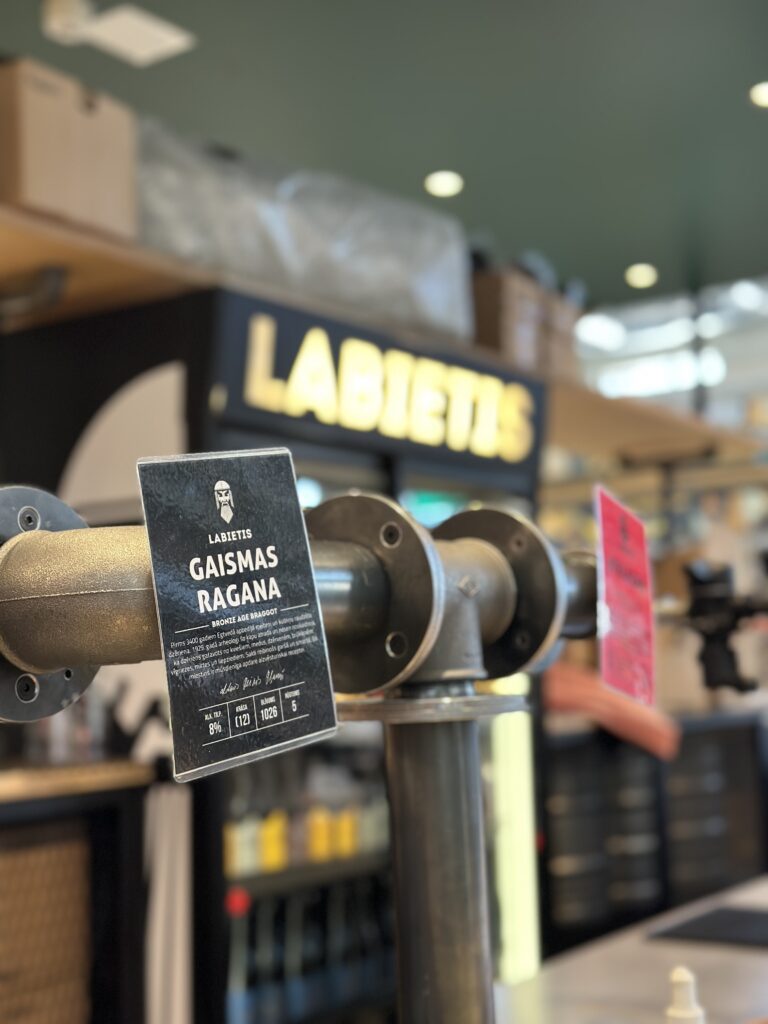
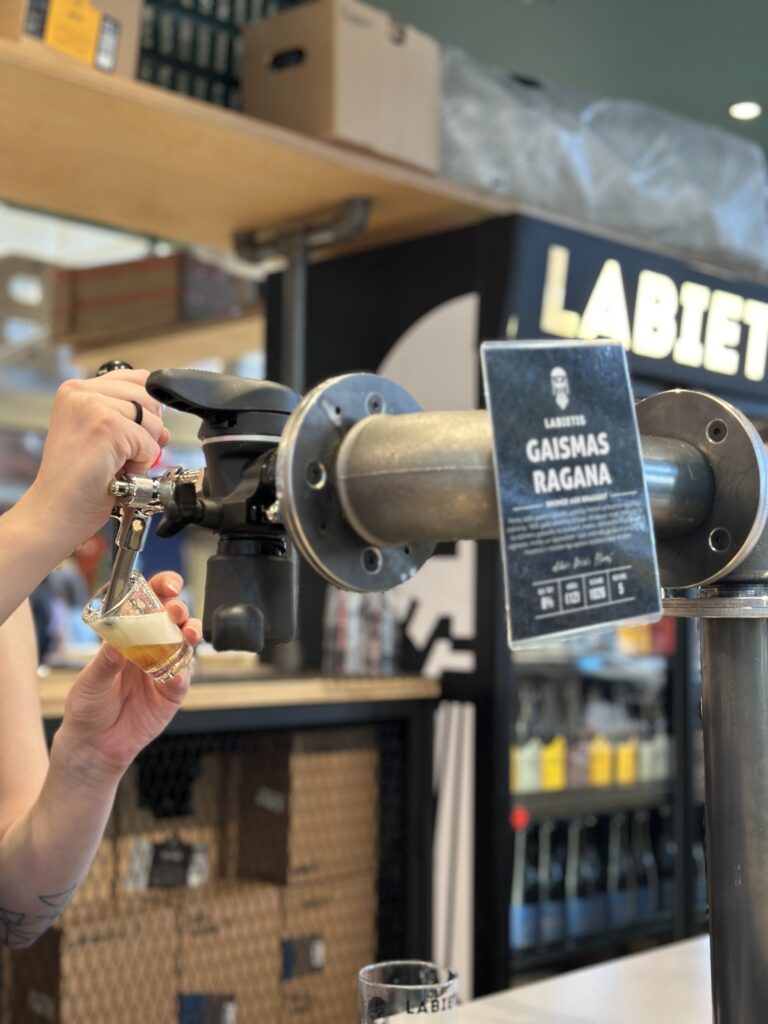
They explain: “We don’t know what beer tasted like 200 years ago, let alone earlier. However, one thing is certain that beer as well as other fermented beverages have always been mostly made from local ingredients.
“Like brewers since time immemorial, we also use local ingredients as much as possible in our beers, braggots and meads, because their taste is closer to our souls and therefore a better medium for you to taste a piece of our cultural history. Accordingly – if an ingredient is commercially available in Latvia, then we will use it.”
“Looking at the history of about 10,000 ancient fermented beverages, including beer, the belief that beer needs only three ingredients – barley, hops and water – is a novelty. And what is beer anyway? We believe that any fermented grain and herb drink can be called a beer.
“Hop is just one of the herbs that can enrich the taste of beer. Similarly, barley is only one of the sources of sugar – with us, beer can also be made from wheat, rye, oats, buckwheat, as well as enriched with honey or a variety of berries and fruits from the forest and garden. Beer is no place for prejudice!”
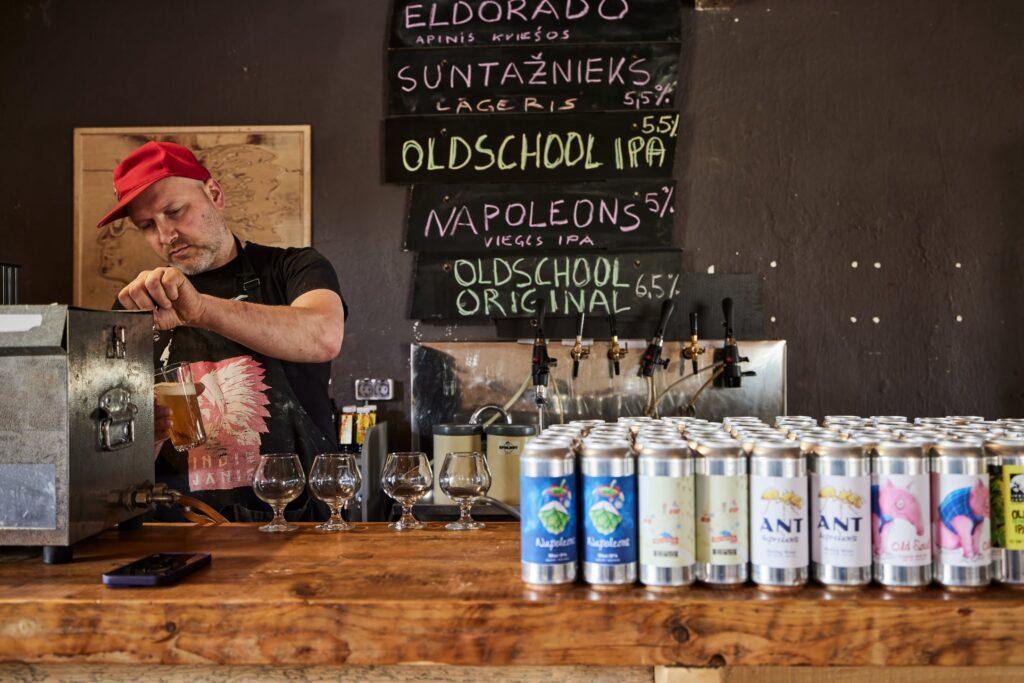
If you head about an hour east out of Riga to Upespils in the Suntaži Parish you will find IndieJānis. A homebrewer since 2008 before going commercial in 2017, Jānis Rudzītis’ love of modern beer started when he tried Snake Dog IPA from Maryland, USA-based Flying Dog.
“At the time this was very surprising to me. It was very bitter, grassy and resinous. I wasn’t aware beer could be like this and it inspired me to try and make my own,” he recalls.
Before beer, Rudzītis worked in the construction industry in Norway. “I was there a long time and after a while I was bored. I was ready for a change and ready to return to Latvia.”
His construction background enabled Rudzītis to put together his own canning machine, which enables IndieJānis beers to reach customers outside of the brewery.
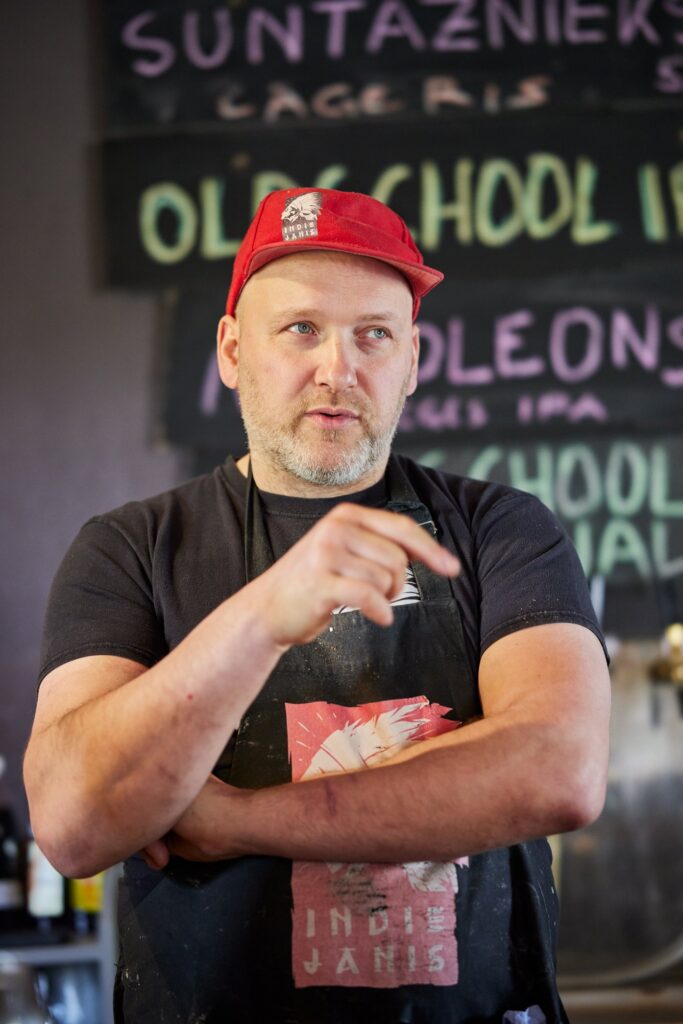
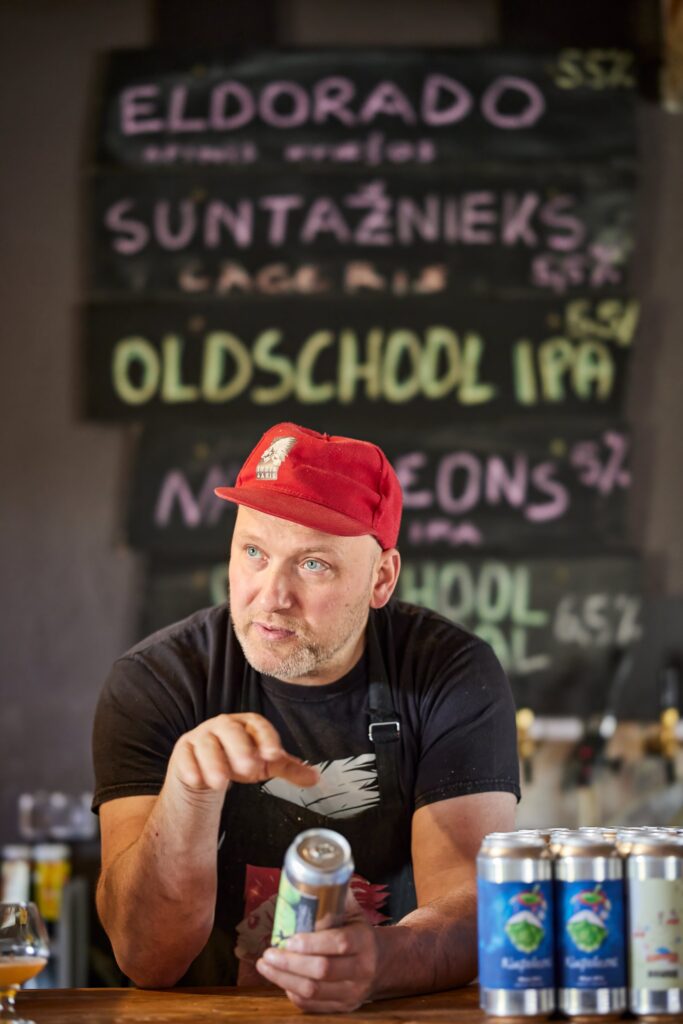
Although the popularity of his delicious pizzas, and certain beers that can only be enjoyed on-site, means the IndieJānis is a hit with visitors.
The excellent Suntažieks is a rustic, country-style lager that can only be drunk at the brewery, or bought to take away on draught. The name of this special beer stems from the nearest town Suntaži, with Suntažieks being the name of people that hail from that very spot.
While there are a wealth of breweries producing modern, hazy beers in Latvia, Rudzītis’ passion lies in bitterness. “I don’t make New England-style IPAs. I consider myself more in the old school, with beers in the West Coast style that was very popular 10-15 years ago,” he says. “But thankfully the people that come here like those beers, too.”
Be it for a beer, a pizza or a live concert in the spacious beer garden, IndieJānis is a unique brewery run by a passionate owner making excellent beers.
Travelling some 50 miles North East of IndieJānis to Rauna will take you to Malduguns. Malduguns is one of the first craft breweries in Latvia.
Their philosophy of craft beer is based on small-scale, high-quality beer that uses high-quality ingredients that large producers rarely use due to costs.
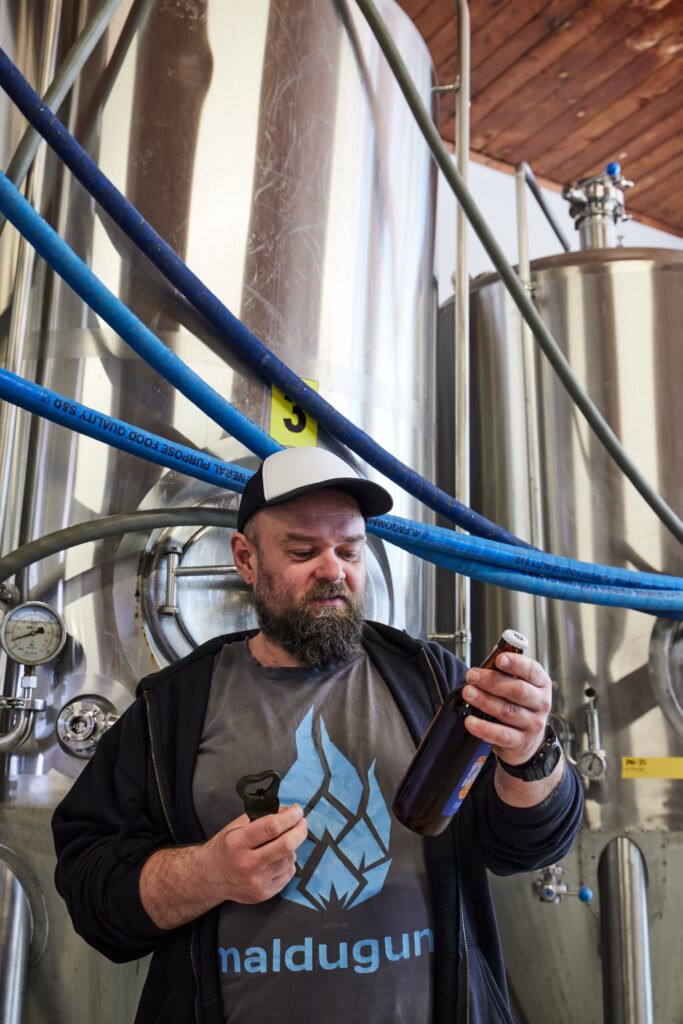
Andris Liepiņš is the co-founder of Malduguns. Starting out in 2013 the brewery, which he started with Krišjānis Zeļģis and Valdis Jansons is a product of Latvia’s vibrant homebrewing community.
“As homebrewers we would all meet once in a while to exchange beers and ideas. We realised we all wanted to open a brewery and decided to combine our efforts to help make that happen,” says Liepiņš.
As homebrewers we would all meet once in a while to exchange beers and ideas.
Andris Liepiņš, Malduguns
Initially located in the village of Roze, in the former premises of the Rauna bakery, and producing 4000 litres a month the brewery would relocate to larger premises in Rauna. A facility that continues to grow and expand.
“When we started we were one of the first smaller breweries. With beers like Lagers still incredibly popular, we knew we had to make our beers approachable and accessible. Key to this was balance and drinkability,” he recalls. “If you shocked your potential customer base with crazy flavours we would probably not have sold any beer!”
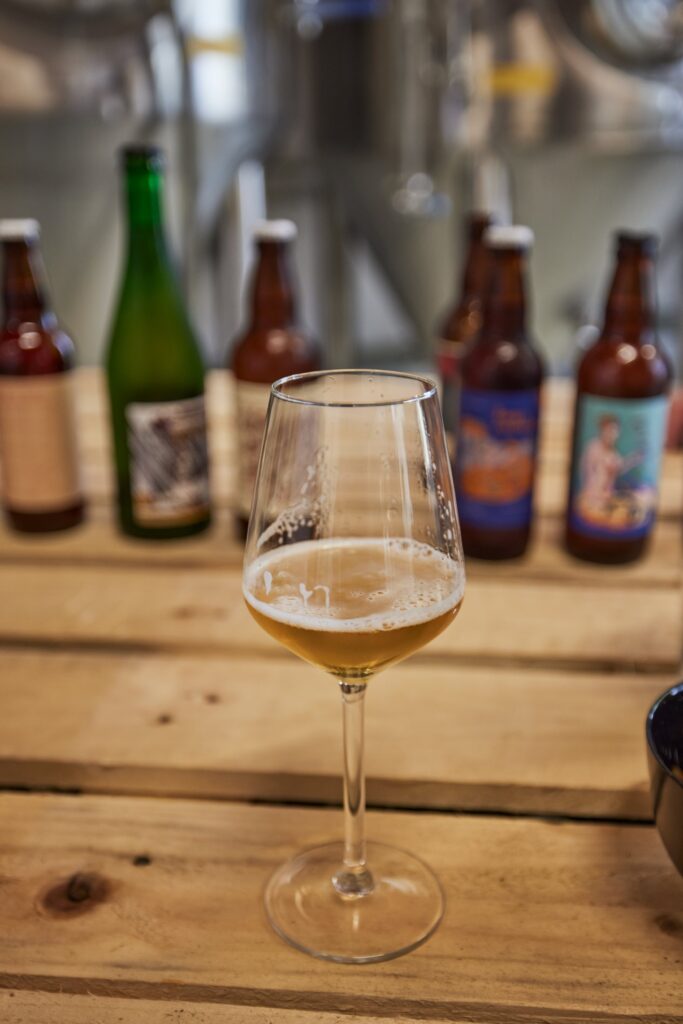
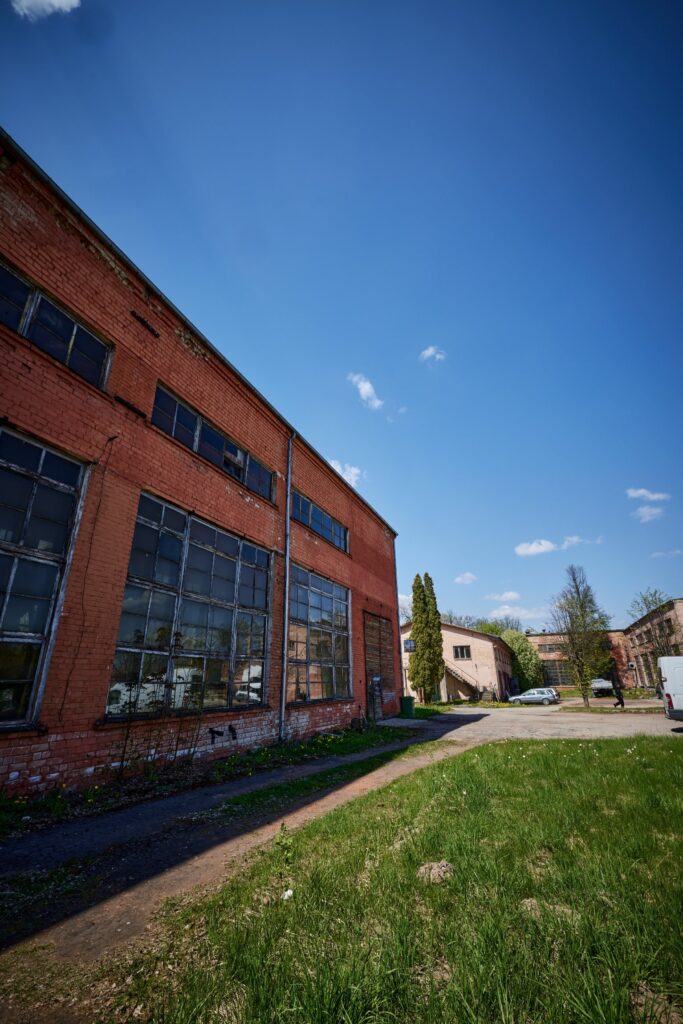
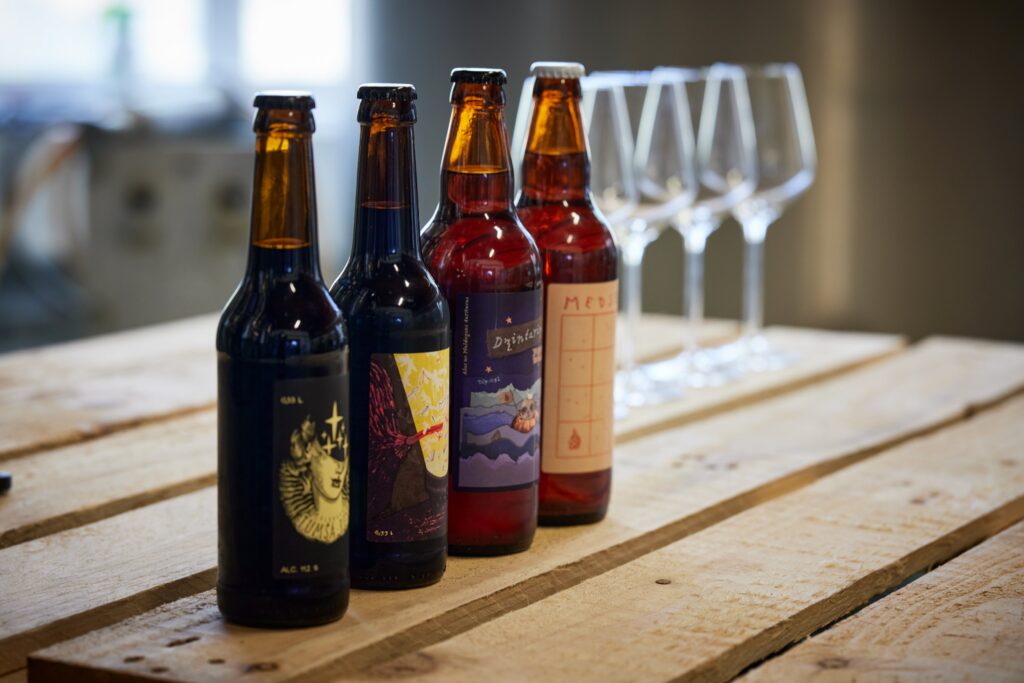
Beers like Sānslīde are a malty and full-bodied IPA with a rich hop aroma – tropical fruits, melons, cherries – made with Summit, Simco, Cascade, Centennial, Amarillo hops. Mainstay beer Cilpa is a light and pale ale with an emphasis on American hops, which gently dominates floral and tropical fruit aromas.
Elsewhere there is Švīka, described as the lightest beer Malduguns in history. A lager to which dry hopping gives additional freshness and on the other end of the spectrum is Tumšā Puse. Saturated, with a dense body of roasted malts, which hides a complex taste adventure in every sip. In the taste you will find dried fruits, tobacco, leather notes. Maldugun’s strongest beer, whose power is dressed in malt. “A slow-paced adventure,” says Liepiņš.
“We try to make different styles that we feel comfortable with producing and also feel that maybe are lacking in the Latvian beer scene. From sours to dark beers and Brett mixed fermentation releases, we love experimentation and to keep the consumer interested,” he adds.
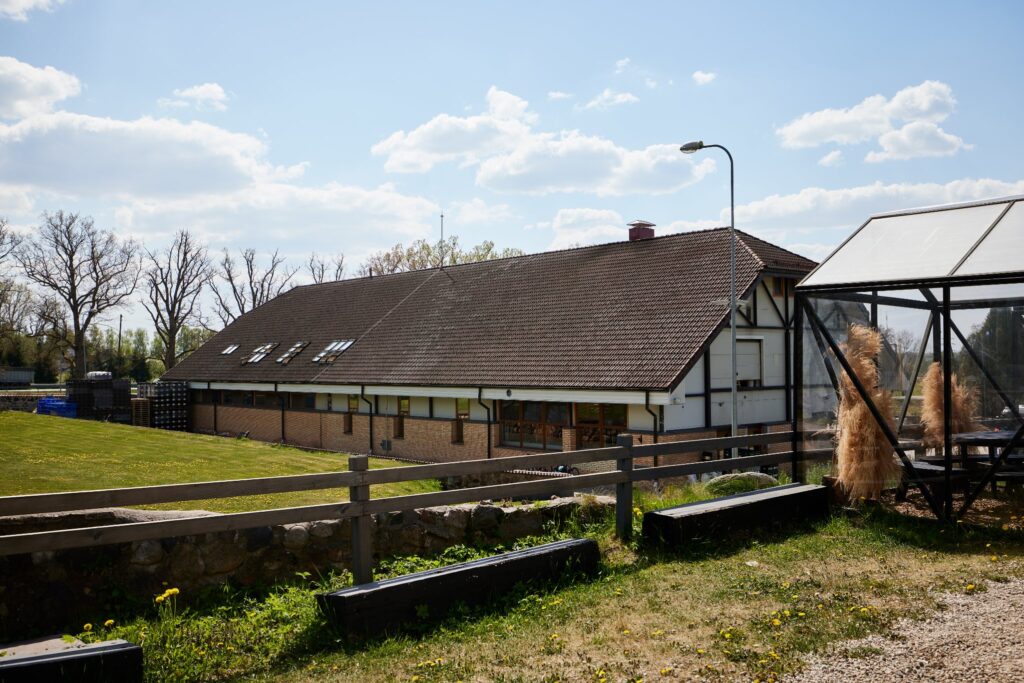
30 minutes north of Malduguns is a completely different type of brewery in Valmiermuiža Brewery. Established in 1764, Valmiermuiža is one of Latvia’s oldest breweries. The name of Valmiermuiža has been etched into the annals of history since the turn of the 14th century, due to the existence of an impressive tavern that belonged to Valmiera Castle, where patrons could buy beer brewed by the Lord of the Manor.
Originally, Valmiera Manor was located near Valmiera Castle, but around the year 1624 it was moved to the location where Valmiermuiža Brewery is currently based.
An incredibly popular spot with visitors and tourists from across the globe descend to enjoy its beer and food produced on-site as well as a comprehensive visitor experience.
On the beer front, Valmiermuiža Amber Lager is different from ale due to a touch of light caramel malt, which in tandem with classic Pilsner and Munich forms a rich amber coloured beer with white foam head and sweet bread aroma.
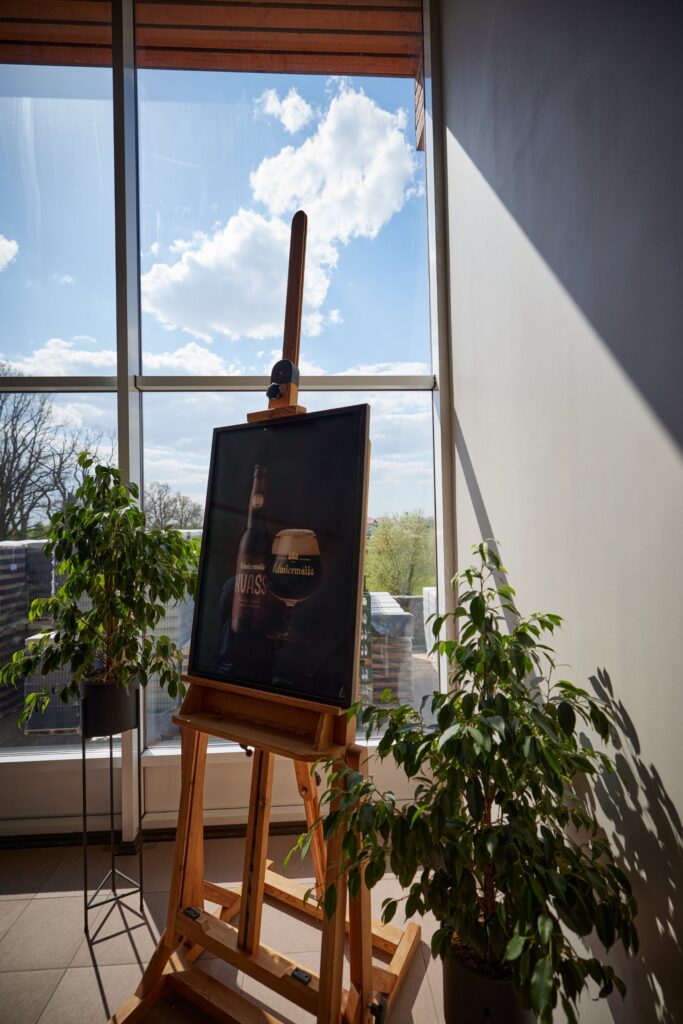
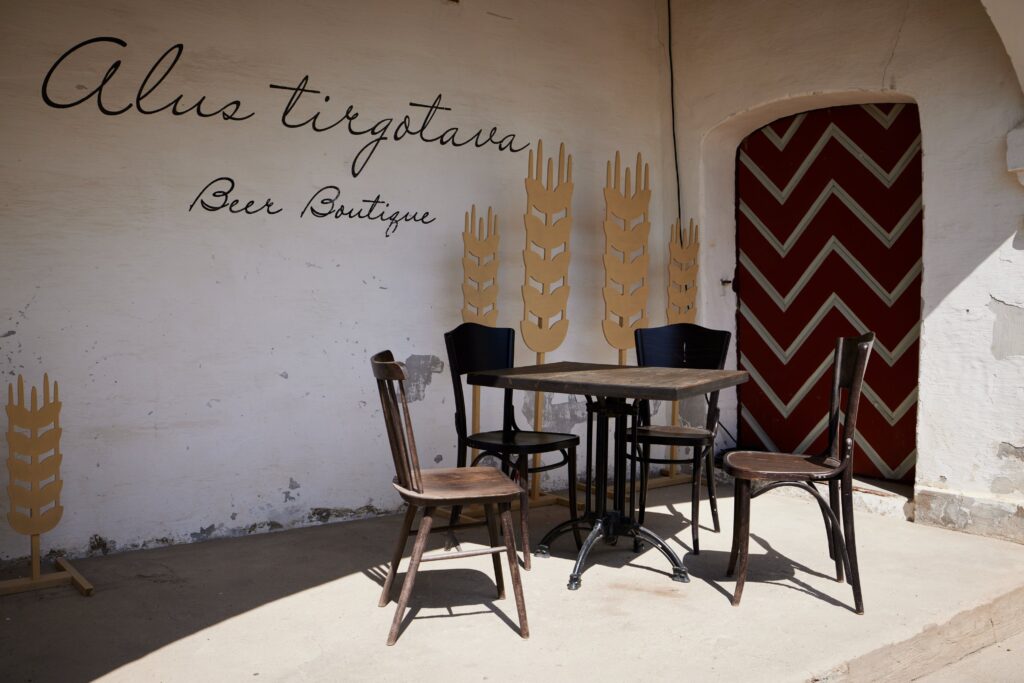
The crisp sweetness of the first sip is offset by the vibrant bitterness of hops with notes of blooming meadows at the height of summer and a tinge of honey.
While Valmiermuiža Dark Lager is brewed with dark caramel, Munich and Pilsner malts, which give the beer its sweet richness, while Hallertauer Mittelfrüh and Nugget, which also comes from Hallertauer, hops generate the aroma bouquet and bitter notes of flavour.
In addition to a number of other drinks types are its Distilled Baltic Amber Lager. In three hours, from 150 litres of beer, they obtain just seven litres of distilled lager with a strength of ABV 80%.
Later on, they mix this with water from Valmiermuiža’s artesian well so that the strength “drops” to 42 %. Before it is poured into a bottle, distilled lager is frozen to a temperature of —4 °C.
Alternatively there is Malt Liqueur. The basis for the liqueur is Valmiermuiža Distilled Amber Lager to which they add a “judiciously proportioned measure of Valmiermuiža malt sauce” (150ml malt sauce is added to 100ml distilled lager).
This sweet delicacy is then poured into a barrel and left to mature for 10 days. When the taste master deems that the flavour has matured to his satisfaction, the malt liqueur is carefully poured into bottles.
Commenting on their impressive brewery establishment, they explain: “We in Valmiermuiž keep in mind that we draw strength from the land called Latvia.
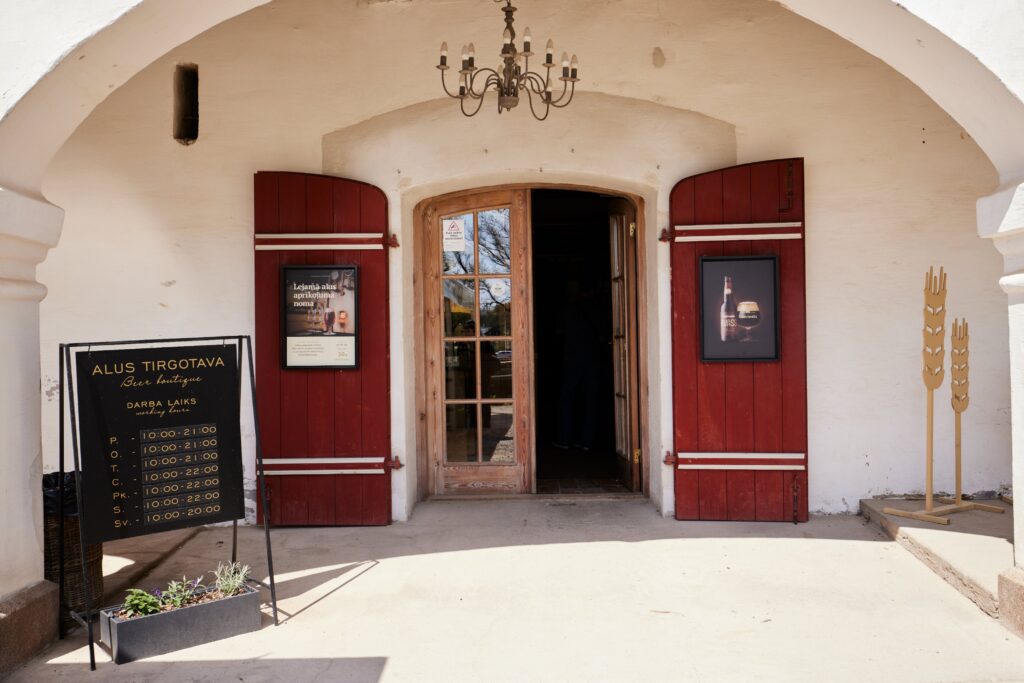
From the Latvian language, customs and culture. That is why we also consider it a matter of honour to support large-scale Latvian cultural events that keep our traditions and language alive, as well as promote Latvia’s name in the world through culture – theater, music, cinema, poetry, fashion, photography, fine arts and architecture.
“Just as honing the flavors of Valmiermuiža beer is long and thorough, we believe that the most successful cooperation is based on long-term, trusting relationships, which are united by common goals and confidence.”
So if you’re looking for breweries that are the definition of small-batch production, trailblazing new brews, or traditional businesses producing classic styles, Latvia has fans of excellent beer well and truly covered.

